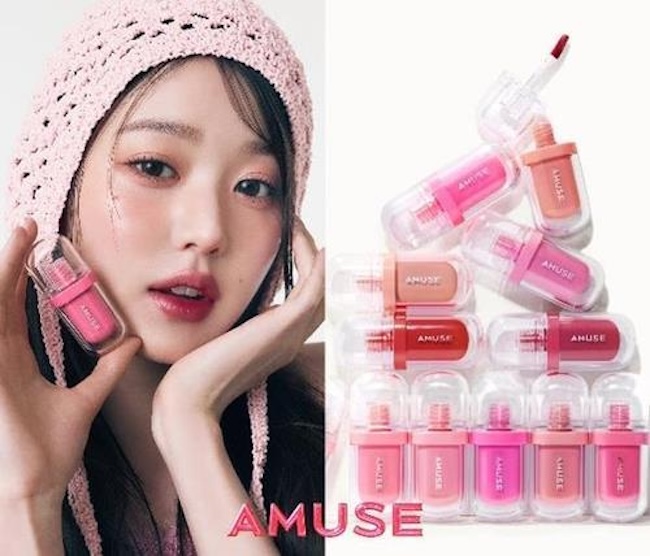Our Terms & Conditions | Our Privacy Policy
Korean Cosmetics Giants Embrace ‘Hands-Off’ Approach in Indie Brand Acquisitions

Amuse (Image courtesy of Shinsegae International)
SEOUL, Sept. 9 (Korea Bizwire) – K-beauty products are rapidly gaining popularity worldwide, and a wave of mergers and acquisitions is sweeping through South Korea’s cosmetics industry. In a notable trend, established cosmetics conglomerates are acquiring indie brands while promising to maintain their independence, a strategy that’s drawing significant attention.
Shinsegae International recently announced its decision to preserve the autonomous management of Amuse, a vegan beauty brand popular among Gen Z consumers, following its acquisition.
Amuse is known for its Jel-Fit Tint, often associated with K-pop star Jang Won-young, as well as other bestsellers like Bebe Tint and Ceramic Skin Perfector Cushion. Shinsegae International plans to finalize the 71.3 billion won acquisition of Amuse by the end of next month.
“Amuse possesses a strong brand identity, trendy designs, and unique product planning capabilities,” a Shinsegae International representative stated. “Through independent management, we aim to further develop Amuse’s distinctive characteristics and strengths.”
This approach is not unique to Shinsegae. LG Household & Health Care acquired the color cosmetics brand Hince last year, guaranteeing its independence for several years. Similarly, Amorepacific is ensuring maximum autonomy for Cosrx, a low-irritant skincare brand it acquired in October 2023.
An Amorepacific spokesperson explained, “We believe that respecting and maintaining the existing management style and corporate culture is crucial for sustainable growth post-acquisition.”

Cosrx (Image courtesy of Amorepacific)
Industry experts view this hands-off approach as a strategic choice to preserve the unique strengths of indie brands. These smaller companies are known for their innovative planning, rapid decision-making, and effective customer communication and marketing.
For instance, Amuse, founded in 2018, has achieved a remarkable five-year average growth rate of 176% by leveraging K-pop star power and developing popular products. Another success story is Tirtir, which generated 171.9 billion won in sales last year. The company is known for its agile product development, often creating new versions of products based on hourly customer feedback.
Industry insiders argue that absorbing these indie brands into large corporate systems could dilute their strengths. “With the rise of social media, consumers quickly evaluate and share brand experiences,” one cosmetics industry representative noted. “Rapid feedback integration is crucial, which could be compromised if big company systems and cultures are imposed.”
Another industry expert added, “While large corporations have numerous success stories, they tend to make ‘safe choices.’ Guaranteeing independence for indie brands was likely an unavoidable decision to preserve their innovative spirit.”
Some conglomerates are also actively fostering indie brands. LG Household & Health Care invested 5 billion won in a K-beauty startup investment fund, aiming to discover and nurture emerging brands.
Ashley Song (ashley@koreabizwire.com)
Images are for reference only.Images and contents gathered automatic from google or 3rd party sources.All rights on the images and contents are with their legal original owners.



Comments are closed.